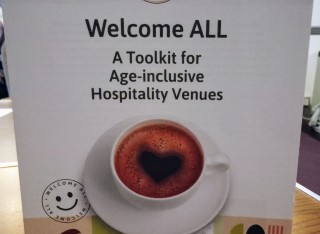
Dr Xuan (Lorna) Wang
About
Biography
Lorna joined University of Surrey in September 2017. She holds a PhD from Oxford Brookes University. She serves on the editorial boards of a number of leading hospitality and tourism management, revenue management journals. She also holds Visiting Professorship at University of Angers (France) and regularly gives talks in various Universities in Europe and in China.
Prior to her academic career, Lorna held a number of managerial positions such as Marketing Director and Rooms Division Director in China and in the UK. She won the ‘Lord Forte Award’ from the Institute of Hospitality in London in the year 2000. In China, she worked with ‘Guo-An Hotel Corporation’ based in Beijing, where she led her team to win ‘the Best Service Award’ from Beijing Tourism Administration Bureau after hosting ‘the 11th Asian Games’ in 1990. It was one of the first mega-events hosted by China and she was awarded as ‘Service Pacesetter’ in recognition of her personal contribution.
University roles and responsibilities
- Co-Director, Centre for Research on Ageing and Generations (CRAG)
- PhD Supervisor
- Postgraduate Programme Leader - Hotel Investment and Asset Management (Jan 2019 - June 2022)
- Deputy Head, Department of Hospitality (Jan 2021 - Aug 2022)
Previous roles
Programme Leader - MA Luxury Hospitality Management
Programme Leader for MA International Tourism and Hospitality Management
Affiliations and memberships
- The Service Industries Journal
- Journal of Hospitality and Tourism Research
- Journal of Revenue and Pricing Management
- University of Hertfordshire
News
In the media
ResearchResearch interests
Revenue Management, Customer Relationship Management, Key Account Management and Brand Reputation Management
Hospitality Connect: the role of local hospitality businesses in connecting lives and building communities
The aim of the research is to develop our understanding of existing and potential opportunities for hospitality businesses to play an influential role in supporting social connections within communities. More specifically, the project will employ a participatory action research (PAR) approach to identify the challenges and benefits of older people visiting local cafes and pubs. These venues provide important social spaces where people come together to connect with others. The UK’s high street has undergone significant change in recent years, from mostly retail-focussed environments to increasing numbers of cafes, presenting an opportunity to explore the ways in which many of these might be transformed into age-friendly spaces.
The project is funded by the UKRI Healthy Ageing Challenge as part of the Social, Behavioural and Design Research Programme (SBDRP).
Funding amount: £124,511
Age Inclusive Hospitality (AiH)
Principal investigators: Dr Lorna Wang, Professor Andrew King, Dr Kimberley Smith, Rushaa Hamid
Start date: September 2024
End date: December 2025
Principal investigator: Dr Bora Kim
Start date: March 2021
End date: September 2021
Funding amount: £10,000
Research projects
Loneliness has been identified as a major issue among older adults in the UK, affecting an estimated 1.4 million in the UK. Age-Inclusive Hospitality (AiH) venues can help to counteract this issue by offering valuable spaces for social interaction.
Building on a previous project funded by the UKRI Healthy Ageing Challenge, ‘Hospitality Connect’, saw Dr Lorna Wang and her team conduct interviews with older adults aged 65+, hospitality businesses and policy influencers, to co-create a ‘Toolkit’ of resources to help hospitality venues become more age-friendly and to empower adults to stay socially connected.
This ESRC IAA funded project will expand the reach of the ‘Welcome ALL’ toolkit to more hospitality venues, creating impact by significantly increasing positive social interactions and reducing social isolation among older people in communities. The team will also be able to monitor and evaluate the economic and social impact on hospitality businesses of adopting the toolkit and explore the potential of a national rollout.
Indicators of esteem
Outstanding Reviewer Award - International Journal of Contemporary Hospitality Management (2017)
Best Research Paper Award – 5th International Conference on Services Management, awarded by International Journal of Contemporary Hospitality Management (2011)
Institute of Hospitality (formerly HCIMA) - Millennium Research Award (2000)
Research interests
Revenue Management, Customer Relationship Management, Key Account Management and Brand Reputation Management
Hospitality Connect: the role of local hospitality businesses in connecting lives and building communities
The aim of the research is to develop our understanding of existing and potential opportunities for hospitality businesses to play an influential role in supporting social connections within communities. More specifically, the project will employ a participatory action research (PAR) approach to identify the challenges and benefits of older people visiting local cafes and pubs. These venues provide important social spaces where people come together to connect with others. The UK’s high street has undergone significant change in recent years, from mostly retail-focussed environments to increasing numbers of cafes, presenting an opportunity to explore the ways in which many of these might be transformed into age-friendly spaces.
The project is funded by the UKRI Healthy Ageing Challenge as part of the Social, Behavioural and Design Research Programme (SBDRP).
Funding amount: £124,511
Age Inclusive Hospitality (AiH)
Principal investigators: Dr Lorna Wang, Professor Andrew King, Dr Kimberley Smith, Rushaa Hamid
Start date: September 2024
End date: December 2025
Principal investigator: Dr Bora Kim
Start date: March 2021
End date: September 2021
Funding amount: £10,000
Research projects
Loneliness has been identified as a major issue among older adults in the UK, affecting an estimated 1.4 million in the UK. Age-Inclusive Hospitality (AiH) venues can help to counteract this issue by offering valuable spaces for social interaction.
Building on a previous project funded by the UKRI Healthy Ageing Challenge, ‘Hospitality Connect’, saw Dr Lorna Wang and her team conduct interviews with older adults aged 65+, hospitality businesses and policy influencers, to co-create a ‘Toolkit’ of resources to help hospitality venues become more age-friendly and to empower adults to stay socially connected.
This ESRC IAA funded project will expand the reach of the ‘Welcome ALL’ toolkit to more hospitality venues, creating impact by significantly increasing positive social interactions and reducing social isolation among older people in communities. The team will also be able to monitor and evaluate the economic and social impact on hospitality businesses of adopting the toolkit and explore the potential of a national rollout.
Indicators of esteem
Outstanding Reviewer Award - International Journal of Contemporary Hospitality Management (2017)
Best Research Paper Award – 5th International Conference on Services Management, awarded by International Journal of Contemporary Hospitality Management (2011)
Institute of Hospitality (formerly HCIMA) - Millennium Research Award (2000)
Supervision
Postgraduate research supervision
I supervise postgraduate research students on topics relating to the business, marketing, and the social impacts of hospitality and tourism.
Current PhD students:
Xiaoyi Xu (Principle Supervisor, 2021 to date). Research topic: Managing and measuring customers’ value co-Creation (VCC) in online travel platforms.
Youlan Li (Principle Supervisor, 2022 to date). Research topic: Rethink crisis management for the hospitality industry in health-related crises from the sensemaking perspective.
Gregory Shadbolt (Co-Supervisor, 2021 to date). Research topic: Business behaviour and epidemic crisis: An analysis of hotel and governmental strategic crisis response during the recovery phase of Covid-19 and its implications
Lijuan Chen (Co-Supervisor, 2024 to date). Research topic: Exploring the usefulness of voice assistant technologies in tackling loneliness and improving social connections through tourism and hospitality
Zhongyin Yao (Principle Supervisor, 2024 to date)
Zhiwei (Sean) Wang (Principle Supervisor, 2025 to date)
Postgraduate research supervision
Completed past PhD students:
Songphon Uthaisar, PhD (2021). Associate Dean for Academic Affairs and Educational Quality Assurance, Mahasarakham University, Thailand.
Linh Pham, PhD (2021). Lecturer in Hospitality and Tourism, Hanoi University, Vietnam.
Shi Ling Kwok, PhD (2021). Lecturer in Hospitality and Tourism, University of West London, UK.
Heba Jamal, PhD (2018). Dean of Jeddah College of Advertising, University of Business & Technology, Saudi Arabia.
Teaching
Modules I teach on
Postgraduate
- MSc Revenue Management
- MSc Strategic Marketing and Brand Management
Undergraduate
- Level 5 - Understanding Revenue Management
- Level 6 - Hotel Revenue Management
Publications
Highlights
Xiaoyi Xu, Xuan Lorna Wang, Bora Kim (2025)Exploring the Value Co-creation Mechanism in Online Travel Communities: Value Co-creators, Engagement Activities, and Interactions, In: Journal of Travel Research.
Wang, X.L. and Brennan, R. (2014) A framework for key account management and revenue management integration. Industrial Marketing Management, Vol.43, p1172-1181.
Wang, X.L., Heo, C., Schwartz, Z., Legohérel, P. and Specklin, F. (2015) Revenue Management: Progress, Challenges and Research Prospects. Journal of Travel and Tourism Marketing, Vol.32, No.7, p797-811.
Altinay, L., Song, H., Madanoglu, M. and Wang, X.L. (2019). The influence of customer-to-customer interactions on elderly consumers’ satisfaction and social well-being, International Journal of Hospitality Management, Vol. 78, p223-233.
Sustainable tourism research has primarily investigated the central route to persuasive communication for sustainable tourism while neglecting the peripheral route. Practically, peripheral routes sometimes outperform central ones due to requiring little cognitive effort and producing instantaneous persuasion. Design factors concerning peripheral persuasive communication influence its persuasive effect, but whether cuteness-a common design-related element-serves as a peripheral route to persuasion remains unclear. Therefore, this research employs cuteness as a peripheral cue to explore its role in promoting sustainable tourism through four scenario-based experiments based on the elaboration likelihood model. Findings are as follows: 1) Study 1 reveals that persuasive communication with (vs. without) a cute design (whether kindchenschema or whimsically cute) generates stronger environmentally responsible behavioral intentions; 2) Study 2 identifies a matching effect of cuteness type and destination gender on such intentions (Study 2 A), with further moderation by cute image gender (Study 2B); 3) Study 3 unfolds a matching effect between cuteness type and environmental appeal on such intentions; 4) Cognitive involvement and affective involvement represent psychological mechanisms behind these matching effects (Studies 2 A, 2B, and 3). This research enriches theories of persuasive communication, sustainable tourism, and cuteness while offering tourism managers suggestions for promoting sustainable tourism.
Many high streets in the UK faced unprecedented challenges over the previous years, including the rise of online retailing, out of town shopping and leisure, rising business costs, subsequent footfall decline and COVID-19. Small and medium-sized enterprises (SMEs) have been especially vulnerable and heavily affected by the pandemic. The need for novel solutions to evolving high streets has never been greater to ensure the survival of our high streets for 2022 and beyond. This project seeks to explore how employing digital platforms, including a mobile application, can help to increase footfall and co-create social value, bridging the ‘bricks and clicks’ to enhance the high street experience of residents and visitors. The project starts with an exploratory phase to understand stakeholders’ expectations and users’ behavioural intentions toward a locally tailored mobile application and online platform. The key challenges identified were changing the purpose of high streets from commercial and retail purposes to the centre of local experience and community engagement. In this sense, effective digital platforms and tools to revive local high streets can play a vital role. Following the exploratory phase, a series of quantitative studies were conducted to investigate how a mobile application and its unique features and benefits drive users’ willingness to adopt and engage with the application and ultimately the willingness to visit the local high street.
Studies have found that consumption emotions play an important role in understanding tourists' behaviors. However, researchers have not sufficiently explored the impact of consumption emotions on tourists' experience with local food, in this case, street food in Vietnam. This study used semi-structured, in-depth interviews with 38 international tourists to Vietnam to understand the emotions evoked by street food and how these are linked to consumption behaviors. Emojis were used as a tool to facilitate the expression of emotions. The paper uses the cognitive appraisal theory to explore and understand the multiple components of consumption emotion and its characteristics. Tourists' diverse emotional responses were found to reflect specific and temporal aspects of tourists' local food experiences and explain tourists' tentative behaviors. The findings also contribute to the understanding and application of emojis as a tool for eliciting emotions in qualitative interviews.
Online travel communities, with their diverse resource-based activities, serve as platforms for distinct user groups to interact and co-create unique forms of value. This research investigates the mechanisms of value co-creation in an online travel community context. By using netnography and semi-structured interviews with 32 online community users and employees, it identifies eight types of value co-creators and examines their engaged activities and interactions. The findings reveal that diverse engagement behaviors, coupled with the interconnection between online and offline interactions, facilitate the value co-creation process in an online travel community. This study advances the current tourism literature by developing a typology of value co-creators in online travel communities and sheds light on how value is co-created by multi-actors through both online and offline activities and interactions. Tourism organizations can utilize these findings to foster engagement and co-create value with and for stakeholders in online travel communities. Also available in Chinese. See Supplemental Material for details.
Tourist information search behavior is one of the most important aspects of risk reduction in the travel decision-making process. Understanding tourists’ behavior when searching for online information has been heavily weighted toward user-generated content (UGC), mainly employed deductive research approaches. This study examines the influence of both UGC and marketer-generated content (MGC) on tourists’ choice of restaurant, using eye-tracking technology to measure customers’ visual behavior combined with retrospective think-aloud interviews. Data was collected from 28 participants in a laboratory-based study. Video recordings of participants’ eye movements during the task aided participant recall in follow-up interviews. This study offers insights into the integrated investigation of the influence of UGC and MGC on tourists’ information search behavior. It validates and extends understanding of the roles of pictorial information, written information, and other factors, and newly clarifies the role of both positive and negative reviews in influencing restaurant selection from international tourists’ perspectives.
This study investigates the effect of family involvement on family firms' entrepreneurial behavior through decentralization. Borrowing from agency theory and using a sample of 145 entrepreneurs, this study contributes to entrepreneurship literature by providing a fine-grained explanation about how a decision-making mechanism such as decentralization influences the relationship between family involvement and innovativeness, and risk taking of family firms. Furthermore, this study demonstrates the importance of considering heterogeneity of family firms and the focal role of decentralization in spurring up firm-level entrepreneurship.
This paper analyzes the process of changing a competition-oriented room rate pricing approach into a company-wide value-based pricing process from the perspective of the resource-based view. From a sample of 33 hotels in 16 countries it evaluates data from 55 open-ended interviews, documentation and archival records. Employing systems methodology the study illustrates that pricing is an intra/inter-organizational activity involving cross-disciplinary processes at various hierarchical levels. It finds that changing to value-based pricing involves a remarkable level of especially intangible resources. The study identifies these resources and their impact, identifying how constraints and tensions influence the shift in pricing orientation. It suggests that pricing in a value-driven policy comprises a capability. Without this capability interpersonal realities and goal conflicts, most prominently between sales and revenue, are found to impose major effects on the alignment of functional levels, the change in pricing processes, and the degree to which these are really value-driven.
Key Account Management (KAM) and Revenue Management (RevM) have been widely practiced in the service industries for more than three decades, but the effects of RevM on KAM remain largely unknown. This paper addresses this neglected area of study in the marketing field by presenting a framework for KAM and RevM integration that aligns the potentially conflicting management priorities of the two. The study uses an international hotel company as a research context to investigate, first, how a long-term relational approach to KAM may have been affected by RevM short-term revenue maximization goals, and, second, how KAM could be facilitated by RevM through an integrated approach to yield optimization from perishable products and from key accounts. The proposed framework is the first attempt of its kind to amalgamate KAM and RevM, involving critical analysis to assess comprehensively the revenue and the relationship value of a key account.
Purpose - This study examines the influence of perceived city brand image on emotional attachment to the city. The study also compares the effects of perceived brand image of the city on the emotional attachment to the city across two groups: residents and visitors. Design/methodology - A total of 207 usable questionnaires were collected from 107 residents of the city of Bratislava, Slovakia, and 100 visitors to the city. Partial least square structural equation modelling (PLS-SEM) method was used for data analysis. Findings - This study establishes that perceived city brand image significantly influences emotional attachment to the city. The study concludes that affective city image has greater impact on emotional attachment to the city among the residents than visitors. In contrast, the influence of cognitive city image on emotional attachment to the city does not vary across the two categories of residents and visitors to the city. Practical implications - City tourism marketers should focus on improving city brand images to enhance tourists’ emotional attachment to the city to promote repeat visits among visitors. Originality/value - This study contributes to improving understanding of the impact of perceived city brand image on emotional attachment to the city across the two groups, residents and visitors, using social exchange theory. Furthermore, the findings come from a relatively under-researched Central and Eastern European (CEE) region.
To date, pricing and revenue management literature has mostly concerned itself with how firms can maximize revenue growth and minimize opportunity cost. Rarely has the ethical and legal nature of the field been subjected to substantial comment and discussion. This viewpoint article draws attention to some inherent ethical concerns and legal challenges that may come with future developments in pricing, in particular online personalized pricing, thereby seeking to initiate a broader discussion about issues such as dishonesty, unfairness, injustice, and misconduct in pricing and revenue management practices. Reflecting on how legislators and regulators in Europe seek to limit recent developments in personalized pricing, we argue that not much is to be expected from the legal system, at least not in the short run, with regard to guiding the pricing and revenue field in setting and implementing minimum standards of behavior. Scholarly attention should however not only be directed to the legal challenges of new forms of direct price discrimination, such as algorithmic personalized dynamic pricing, but also to the ethical and legal implications of more granular forms of indirect price discrimination, through which consumers will be allowed to 'freely' sort themselves into different microsegments, especially when the 'self-selection' is enticed by deceptive personalized applications of psychological pricing and neuromarketing.
This paper evaluates the main developments of revenue management (RM) over the past decade and discusses RM challenges and research prospects. It examines nine notable emerging themes: total hotel RM, big data analytics, distribution, rate integrity, RM and marketing strategies alignment, social media impacts on RM, RM system, applications of RM in non-traditional service sectors, and RM education and training. We argue that these developments have far-reaching implications for real-world RM practice and anticipate that the topic areas will continue to be popular for hospitality and tourism research in the foreseeable future.
Purpose The purpose of this paper is to examine franchisees’ business start-ups from an entrepreneurial perspective, adopting a process representative of entrepreneurship to examine opportunity identification and evaluation by franchisees and to analyse factors that influence this process. Design/methodology/approach A qualitative study was employed and data collected using semi-structured interviews with a sample of service industry franchisees in Macau. Findings The study identifies that social networks play a key role in opportunity identification and that franchisees’ goals influence the criteria used and information search activities undertaken while evaluating franchise opportunities. Research limitations/implications The study makes two contributions to franchise literature. It identifies that social networks can serve as substitutes for lack of prior knowledge in franchise opportunity identification. It also identifies the interrelated nature of franchisees’ goals based on the activities and criteria used to evaluate franchise opportunities, and the importance of relational criteria when franchisees lack prior industry knowledge. It therefore also contributes to franchise/entrepreneurship literature by identifying the interrelated nature of the factors contributing to the dynamics of franchise chain growth. Practical implications Franchisors should explore how to better use franchisees’ social networks and identify the longer term goals of prospective franchisees to support market penetration and franchise chain growth. Franchisees are advised to use independent information sources to evaluate franchise opportunities using goal-informed objectives and demand and relational criteria. Originality/value The study presents a more comprehensive understanding of franchisees’ decision-making process when joining franchise chains by identifying the activities undertaken and criteria used to identify and evaluate franchise opportunities.
The soundscape is a relatively neglected area of study in tourism and to a wider extent the service industries research. This paper examines the relationship between soundscape and tourist satisfaction from a tourist sensory experience perspective. Data were collected in a UNESCO world heritage site in China, which is well known for its unique soundscape. The structural equation model analysis shows that there is a significant correlation between soundscape satisfaction and tourist satisfaction. The analysis of the findings also suggests that sound preference has almost no influence on soundscape satisfaction and tourist satisfaction, while soundscape expectation has a strong influence on tourist satisfaction. This study extends tourism multisensory research by offering insights into the relationship between the soundscape perceptions and tourist satisfaction. The findings also make progressive contribution to destination management studies by validating the relationship between the soundscape and its effects on tourist satisfaction.
Purpose This paper aims to address an identified gap in hospitality literature. It examines hotel key accounts' perceptions towards revenue management practice and its impact on key account relationship development. Design/methodology/approach A qualitative research approach was adopted for the investigation through in‐depth interviews with account managers from an international hotel company and its key accounts from nine international companies across three main market segments: airlines, corporate and leisure. Findings The findings of this study show that revenue management practice has reduced relationship stability and the trust between hotels and their key accounts due to a number of reasons. These include: opportunistic behaviour such as unexpected contract rate increases and/or blocked room availabilities during high‐demand days; imposed contractual restrictions; and undisclosed cheaper rates being available via other distribution channels from the same hotel. Research limitations/implications The findings provide limited evidence of total commitment between the two parties and support the “states theory” of relationship development, which appears to be more applicable than the “stages theory” since the hotel key relationships did not necessarily follow a predictable stage‐by‐stage development process and any major incidents could lead to an abrupt termination of the relationship. The in‐depth research findings are limited to one international hotel company's key accounts, which cannot be generalized since it lacks the breadth required for comparability with other organisations. Originality/value This paper bridges the gap between revenue management and key account relationship management literature by providing an insight into the key clients' perceptions towards the effects that hotel revenue management practice has had on relationship development.
Purpose – This study uses the theory of third places to understand how different kinds of social interaction in small hospitality businesses, such as restaurants and cafes, can enhance senior customers’ experience and alleviate their loneliness. Design/methodology/approach – The target population of this study was Hong Kong residents aged 60 or above. The sampling frame comprised respondents who visited a Cha Chaan Teng (that is, a Hong Kong-style tea restaurant) more than once a year. We distributed 500 questionnaires and collected 411 valid responses in 2016. We used structural equation modeling for data analysis. Findings – The results show that social interactions (service manner and need identification) with employees and other customers have a positive effect on senior customers’ experiences while the service manner of employees reduces senior customers’ loneliness. Originality/value – This study exhibits the respective contributions of social interactions with employees and those with customers to enhancing senior customers’ experience and alleviating their loneliness. This study’s new findings may serve as a foundation for future research on the relationship between social interactions, customer experience, and loneliness in third places.
The concepts of customer relationship management (CRM) and revenue management (RevM) have been embraced by managers in the hospitality industry although, in practice, companies may find it difficult to accommodate both fully. This paper examines the compatibility between the two practices and discusses the possible management conflicts that occur from both account managers’ and revenue managers’ viewpoints. Findings gathered from an international hotel company reveal several causes of potential management conflicts including: management goals, management timescales, perceived business assets, performance indicators and management foci between CRM and RevM due to divergence occurring in managers’ priorities and in their approaches to achieving their individual set goals. These differences have rarely been comprehensively investigated in previous studies, yet are vital in integrating CRM and RevM practices.
This study highlights the valuable role the hospitality industry can play in addressing a societal problem by studying how social interactions between elderly consumers and other customers influence the satisfaction and social well-being of the former. The data were collected from 268 elderly consumers in local coffee shops in the United Kingdom using a self-administrated questionnaire. The findings reveal that elderly customers’ interactions with other customers have a direct effect both on customer satisfaction and social well-being. They also show that social interactions with other customers have both direct and indirect effects on the social well-being of elderly customers. The study provides good evidence for how commercial hospitality settings can serve as a space for social exchange that helps to alleviate social isolation.
Despite the increasing interests surrounding online consumer behavior in recent years, there is a paucity in the current literature that attempt to substantiate the relationship between online information search behavior and value-conscious search behavior. This study explores the antecedents that prompt value-conscious online search behavior in hospitality and tourism. Data were collected from 2,013 participants in the United Kingdom. The result shows that hotel information search frequency affects value-conscious search behavior, and that this effect is fully mediated by source familiarity and search attitude. Implications for theory and practice are discussed.
China Ready! prepares students and independent learners to work in the hospitality and tourism industry for high-value tourism business coming from China to English-speaking countries. The book focuses on listening and speaking skills - essential skills for learners. This book's features include the following: Important cultural and social awareness factors for interacting with clients from China Vocabulary Real-life scenarios Situational role playing and interactive listening Experiential exercises to encourage learning outside the classroom. The book is aimed at students who have attained the Common European Framework Reference (CEFR) A2 level and will bring them up to the CEFR B2/C1 level or 汉语水平 考试 (HSK) 4/5.
Purpose This paper aims to explore the links between revenue management and business‐to‐business (B2B) relationships and explains how revenue management can both support and damage B2B relationships. Design/methodology/approach A single case study method was employed to conduct qualitative research into a company and its key accounts. In‐depth data were collected from three divergent sources (company revenue managers, company account managers and nine of the company's key accounts) through semi‐structured interviews, observations and document studies. Findings The research findings reveal that from the company's perspective, managers acknowledge that revenue management has positively influenced the process of identifying and analysing key account activities and conducting contractual decision making with key accounts. However, from the key accounts' perspective, revenue management practices were found to have significant negative consequences which damage trust and undermine long‐term relationships and commitment. Research limitations/implications Although the research findings cannot be generalised to other service sectors because of the single‐case study research method, the implications of this study suggest that the impact of revenue management practice on B2B relationships should be further investigated in a wide range of organisational and industry settings. Practical implications The research findings confirm the long‐held assumption that revenue management can negatively affect B2B relationships. The benefits of revenue management primarily reward the company, whilst long‐term B2B relationship development suffers from the short‐term consequences of the company's opportunistic behaviour. Originality/value This paper bridges the gap in the literature between revenue management and key account management. It also explores the conceptual incompatibility between revenue management and a long‐term relational approach to B2B relationships and provides evidence to support this proposition.
On 30 April–2 May, 2015, an inaugural Revenue Management Education Workshop on teaching Revenue Management (RM) was held at the University of Delaware. Made possible through generous support from Hyatt, the initiative was launched by Prof. Dr. Zvi Schwartz in order to facilitate a dialog among a selected group of hospitality RM educators and key industry players including: major international hotel chains, RM related technology and service providers and leading hospitality educators from worldwide universities. This article summarizes key themes emerged from the discussion and highlights the main challenges currently faced by RM educators.
Additional publications
Xing’an Xu, Shijia Wang, Juan Liu, Xuan Lorna Wang & Nigel Morgan (24 Mar2025): How does the cuteness of persuasive communication about sustainable tourism shape tourists’ environmentally responsible behavioral intentions?, Journal of Sustainable Tourism, DOI: 10.1080/09669582.2025.2478187



